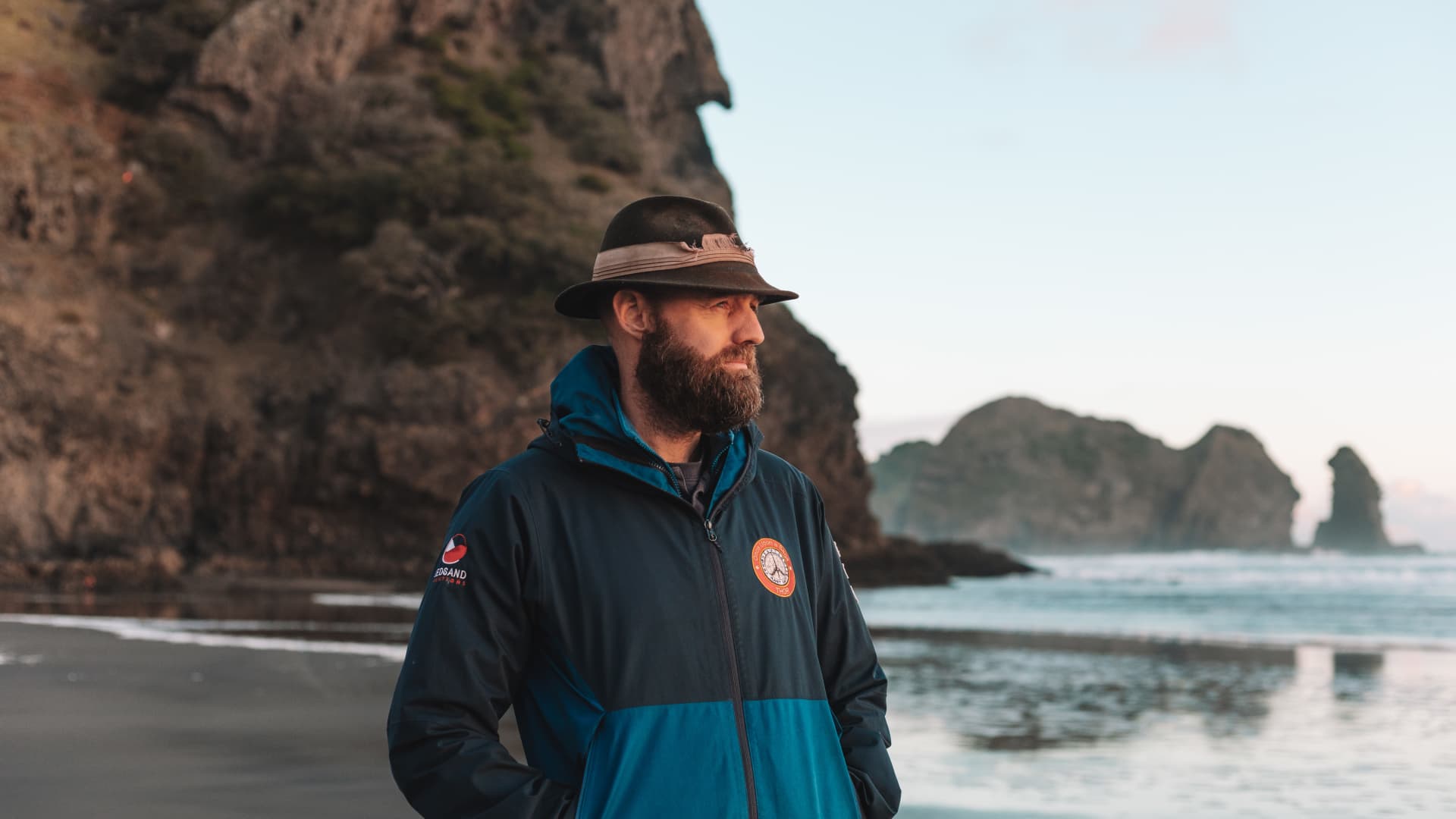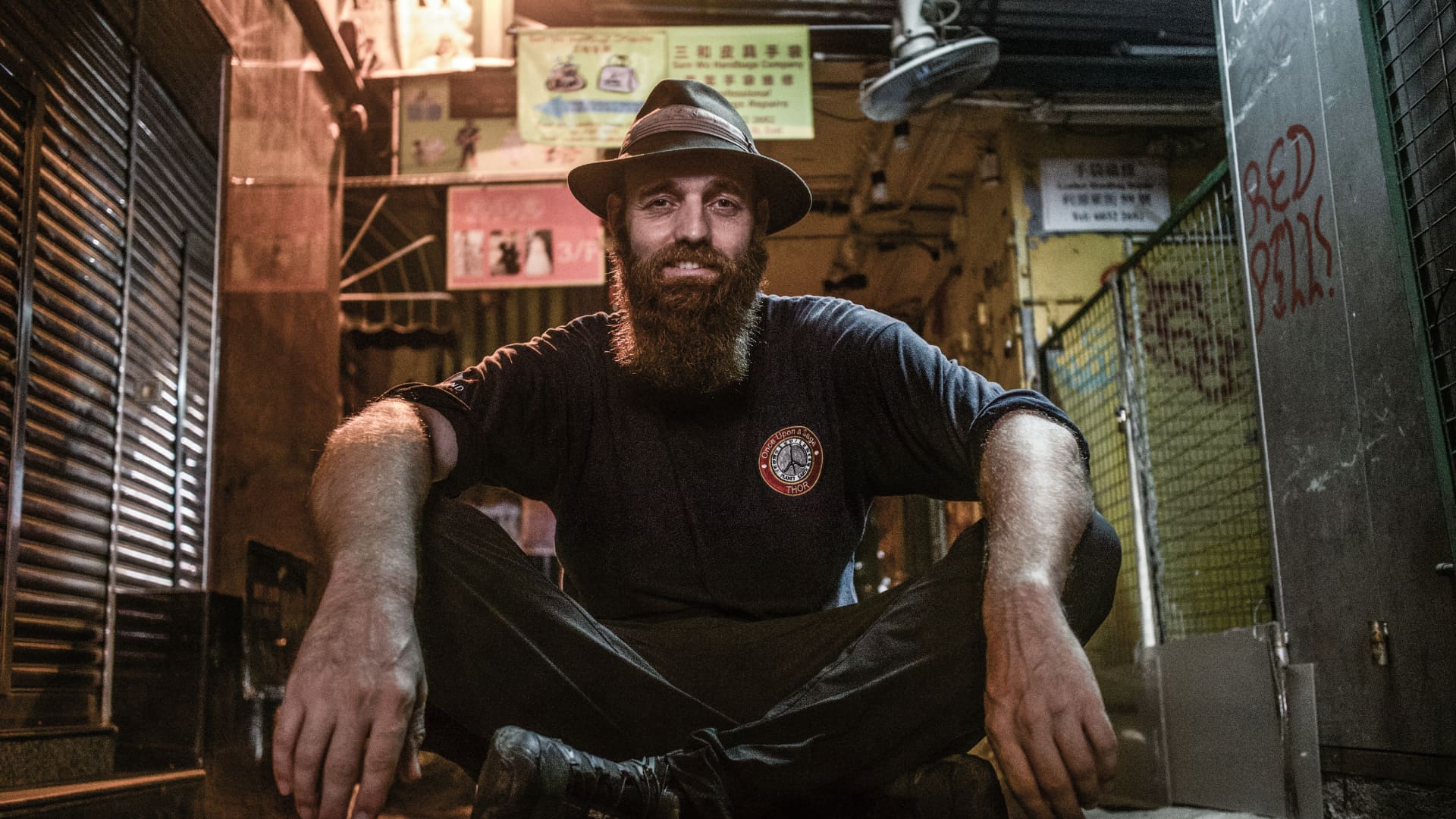
Danish traveler Torbjorn Pedersen says he is the first person to visit every country in the world — without flying.
It's a feat that took 10 years to accomplish — with average costs of around $20 a day, he said.
"In some countries like Singapore, I have to spend more than $20 a day. But in other countries like Bolivia, $20 is more than enough," 44-year-old Pedersen told CNBC.
When he was not sleeping on trains and ships, in hostels or his hammock, he stayed with host families, he said.
Get Tri-state area news and weather forecasts to your inbox. Sign up for NBC New York newsletters.
Pedersen said through the year hundreds of people opened their homes to him after he became popular on social media.
"In fact, I have often had to say 'no' to people because I had too many offers or because it was inconvenient," Pedersen said.
He has even been invited several times to stay at five star hotels, he said.
Money Report
Pedersen's decade-long adventure was funded by geothermal electric power generation firm Ross Energy, who sent him about $600 every month, he said.
"They just felt [my plan] was really crazy, and they wanted to support it. What I did is part of world history, and they wanted to be a part of it," Pedersen said.

To visit 203 territories, Pedersen said he traveled about 382,000 kilometers (237,363 miles) and used 20 different modes of transportation, including:
- 351 buses
- 67 minibuses
- 219 taxis
- 46 motorcycle taxis
- 87 shared taxis
- 4 shared motorcycle taxis
- 28 four-wheel drive vehicles
- 9 trucks
- 158 trains
- 19 trams
- 128 metros or subways
- 43 rickshaws or tuktuks
- 40 container ships
- 33 boats
- 32 ferries
- 3 sail boats
- 2 cruise ships
- 1 horse carriage
- 1 police car
- 1 high performance yacht
Pedersen spent the most time in Hong Kong where he lived for 772 days during the pandemic, and the shortest time — just 24 hours — in Vatican City.
The best and worst times
Pedersen had planned to stay in Hong Kong for about a week when he arrived in January 2020. But his plans took a drastic turn when the pandemic broke out.
At the time, he was just nine countries shy of achieving his goal, he said.
"I've been trying to accomplish this goal for such a long time," he said. "I did not know if I was going to be stuck for five months or five years."
"Every day I had a reason to give up and go home. And every day I had to find a way to convince myself to keep fighting," he said.

Pedersen said being stuck in Hong Kong was the "worst time" of his life, but now he said he views the city as his second home.
"I feel more at home in Hong Kong than I do in Copenhagen, " he said. "On one side it was the best time of my life, and on the other side it was an absolute nightmare."
Near-death experience
Pedersen said one of the most harrowing experiences happened on a trip to the border between Cameroon and the Congo.
After driving on a dirt road for hours on end with "a wall of trees on both sides," he said his taxi was stopped by three men that were "drunk out of their minds."
"From the moment one of the uniformed men saw me as I stepped out of the vehicle, you could just see fire in his eyes," Pedersen said. "There was so much rage and emotion. It was as though the entire history of Western colonialism was my fault."
Pedersen served as a soldier in Denmark and a United Nations peacekeeper in Eritrea and Ethiopia, but he said this was the first time had been aggressively held at gunpoint during his journey.
"They had their fingers on the trigger, so I knew in my heart that I was going to die that night, and I knew for sure that was the end of the road for me," he said.
But after about 45 minutes, the soldiers suddenly let them go, he said.
"We raced back to the taxi and drove for three kilometers before I told the driver to stop. I got out and sat on the roadside, crouched down and started shaking for about 10 minutes."
Pedersen also shared memories he said he would never forget, including visiting the Solomon Islands where he shared his laptop with villagers who had no access to electricity or running water.
"About 80 people sat around my laptop and watched a war film 'The Thin Red Line' while I leaned back and looked at palm trees ... and stars making a roof across us."
"I never looked at my laptop in the same way again," he said.
Biggest lessons
For those who want to follow in his footsteps, Pedersen has this advice: "Don't do it."
"It has come at a very, very high cost and has taken a huge chunk of my life. I spent a lot of resources getting to the end. And it's simply too much and too hard," he said.

"Do something that's more sensible. Do something that's fun and enjoyable," Pedersen said candidly.
He also talked about how to get the most out of every travel experience.
"Listen and look. Smell and taste. Use all your senses and try to suck everything up like a sponge," he said. But "leave nothing behind except for your footprints."






